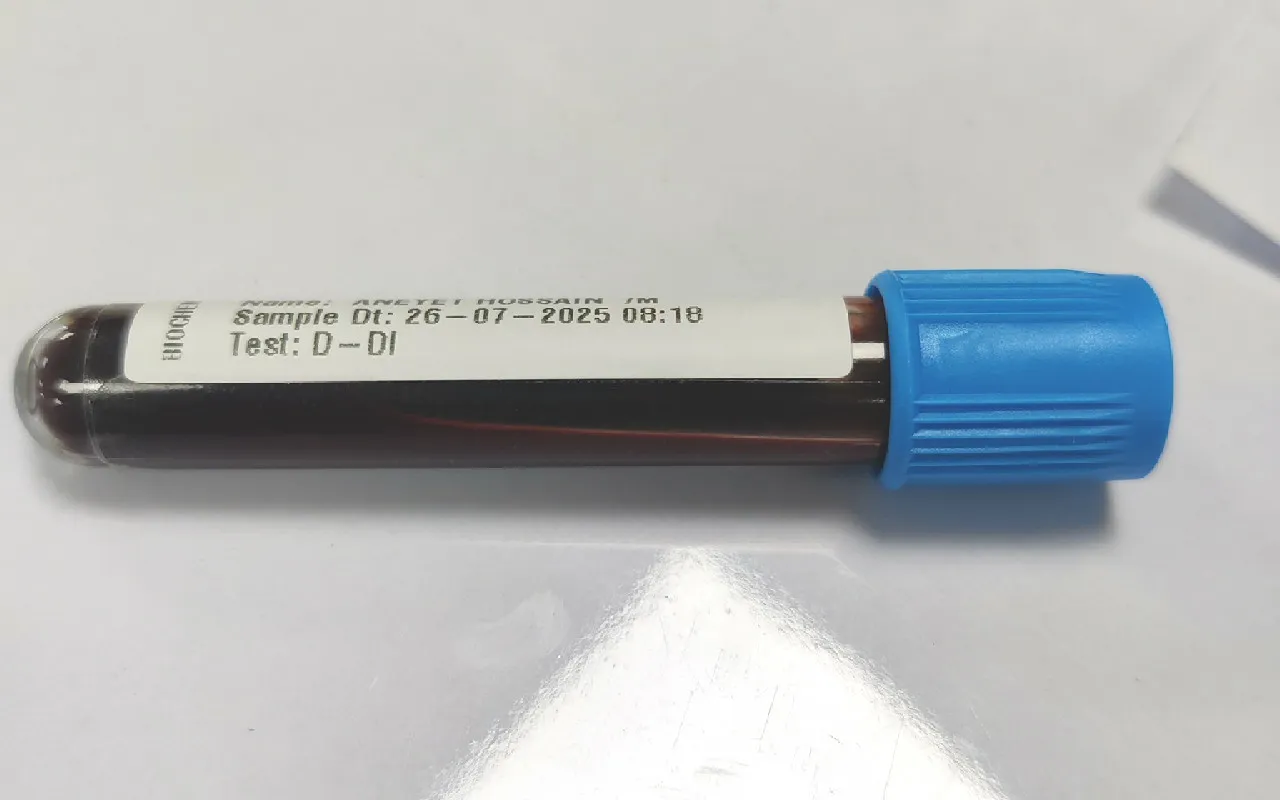The D-dimer test is a blood test used to check if your body is making or breaking down blood clots. It’s a very important test, especially when someone has symptoms like chest pain, shortness of breath, or swelling in the legs. This test helps doctors decide if there might be a serious condition such as deep vein thrombosis (DVT), pulmonary embolism (PE), or disseminated intravascular coagulation (DIC).
What Is D-Dimer?
D-dimer is a type of protein fragment that appears in the blood when a blood clot breaks down in the body. Normally, D-dimer is either absent or very low in healthy people. When the level goes up, it could mean your body is fighting a condition related to abnormal clotting.
Table of Contents
When Do Doctors Suggest a D-Dimer Test?
Doctors may order this test if you have symptoms like:
- Swelling or pain in the legs
- Chest pain or difficulty breathing
- Long periods of bed rest or recent surgery
- A suspected case of stroke or blood clot
- Ongoing fever, low oxygen, or low blood pressure (such as in COVID-19 or sepsis)
This test is very useful in emergency rooms or ICUs where decisions must be made quickly.
You can also read : After How Many Days Pregnancy Can Be Confirmed by Urine Test? – post by OviggoBD.
How the Test Works
A small amount of blood is drawn, typically from a vein in your arm, through a simple and safe procedure. The sample is then sent to a laboratory to measure the level of D-dimer present in your bloodstream.

Many labs in Bangladesh, India, and other South Asian countries now offer this test. In some diagnostic centers, you may even get the result within 2 to 4 hours.
Understanding the Test Results
- Negative Result: If your D-dimer level is normal, it means there’s little chance of a serious clot. Doctors may stop further testing if this result is combined with mild symptoms.
- Positive Result: A positive result, indicating elevated D-dimer levels, could point to the presence of a blood clot or another related health concern. However, a positive result doesn’t confirm a blood clot on its own. Other tests (like CT scan or ultrasound) may still be needed.
Keep in mind, high D-dimer levels can also be caused by:
- Pregnancy
- Liver disease
- Surgery or injury
- Cancer
- Infections like COVID-19
So your doctor will consider the full clinical picture.
You may also read : What is Procalcitonin Blood Test Used For? A Complete Guide for South Asian Countries like Bangladesh and India
Is the Test Risky?
The D-dimer test is very low-risk. You may feel a small pinch when the needle goes in, and some people experience minor bruising. That’s usually the only side effect.
Why This Test Matters
In countries like Bangladesh, where access to advanced imaging is limited in rural areas, the D-dimer test provides a quick way to rule out life-threatening conditions. It saves time and helps doctors decide whether more expensive tests are needed.
Final Thoughts
The D-dimer test is a helpful tool in identifying possible blood clot problems. It’s safe, fast, and useful in many medical situations. If your doctor recommends it, don’t worry—it’s just a step toward making sure your health is protected.
Be sure to consult your doctor for a clear explanation of your test results. Don’t try to self-diagnose or panic based on lab values alone.
Follow the oviggobd fb page for more updates
নতুন কিছু শিখতে চাই এবং সেখাতে চাই । অনভিজ্ঞও থেকে আপনিও হয়ে উঠুন অভিজ্ঞ।